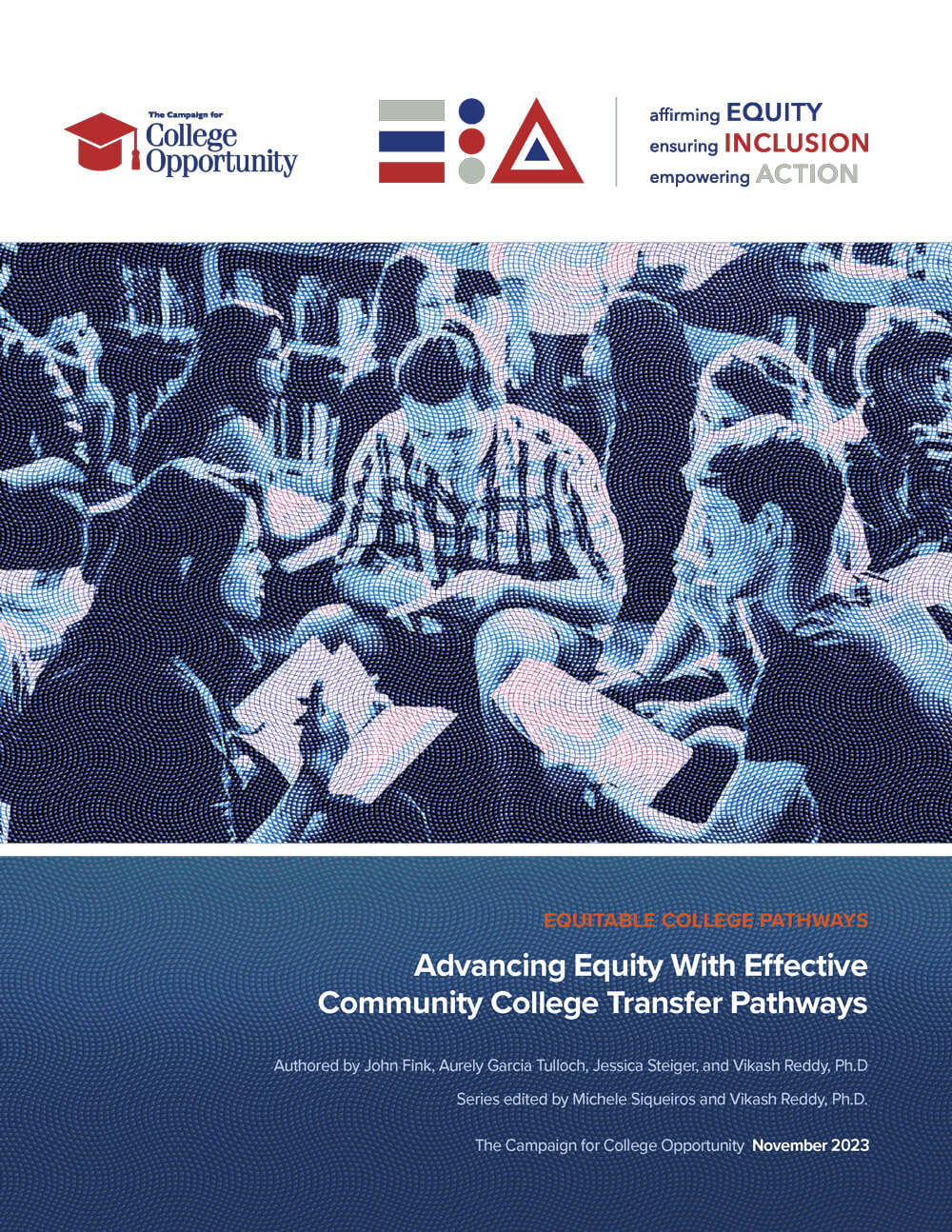
Upward transfer from a community college to a four-year institution is a distinct component of higher education and has long been envisioned as an accessible and affordable route to a bachelor’s degree for students who are underrepresented in higher education. Yet, nationally, only 28% of Black adults and 21% of Latinx adults (over age 25) hold a bachelor’s degree, compared with 42% of White adults. Similarly, only 15% of young adults from the lowest income backgrounds complete a bachelor’s degree by age 24, compared with 59% of their wealthier peers.
Under the Campaign for College Opportunity’s national initiative, Affirming Equity, Ensuring Inclusion, and Empowering Action, this brief explores ways transfer reform can help close equity gaps in bachelor’s degree attainment by providing vital degree pathways for students from minoritized backgrounds. It also examines misaligned policies and inefficient practices that result in just 13% of transfer-intending students completing a bachelor’s degree within six years, and it provides a detailed look at the role of the associate-degree-for-transfer pathway in increasing access to a four-year degree and increasing equity in California higher education. The authors provide recommendations for policymakers and advocates at the federal, state, and institutional levels to promote equitable access to a bachelor’s degree for community college students.
